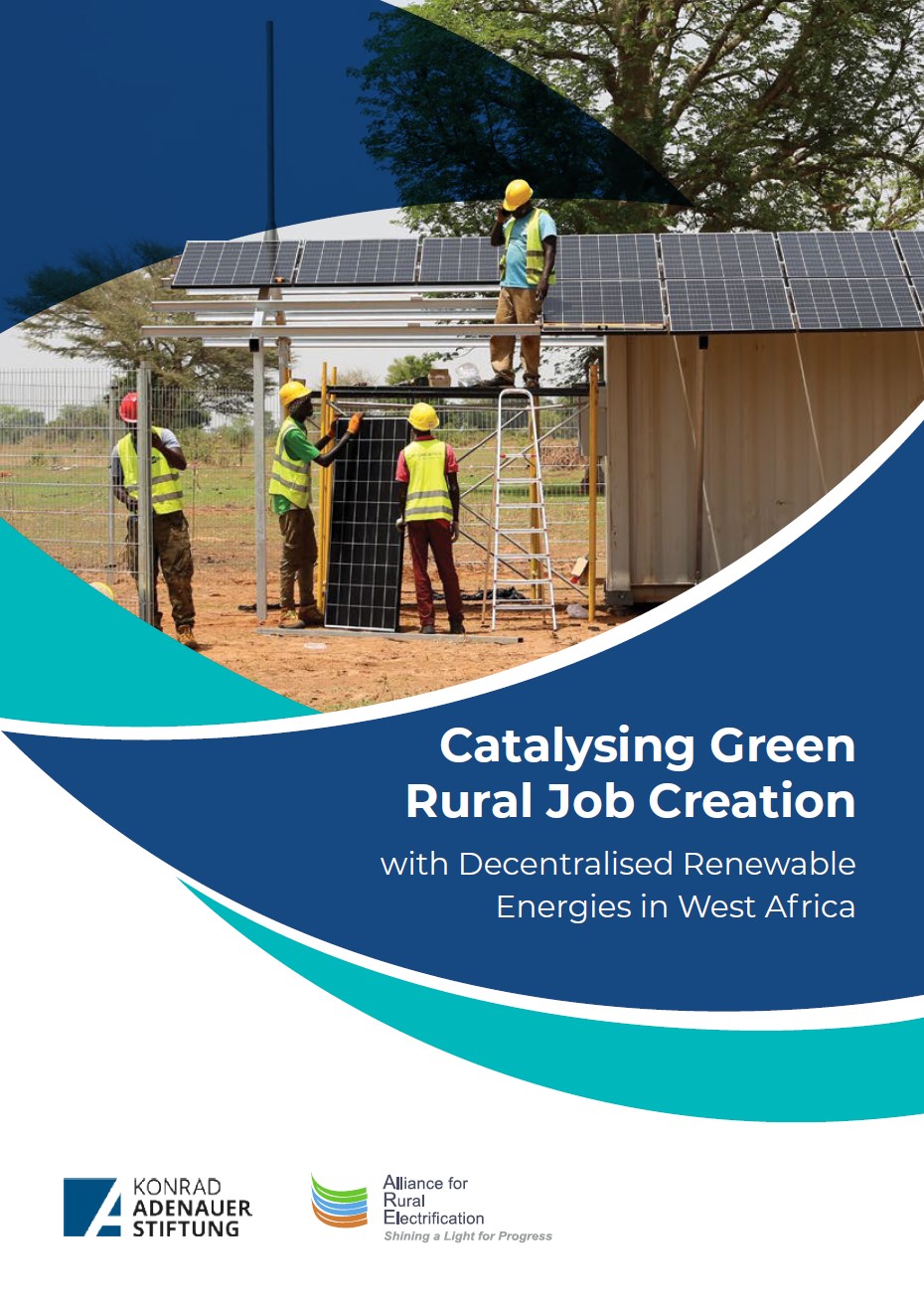Catalysing Green Rural Job Creation with DRE in West Africa
The Alliance for Rural Electrification (ARE), in collaboration with the Konrad-Adenauer Foundation (KAS), presents their latest study, “Catalysing Green Rural Job Creation with Decentralised Renewable Energies in West Africa.”
The global shift towards renewable energy solutions anticipates the creation of 45 million direct jobs by 2050, promising a cleaner, more sustainable future while opening unparalleled employment prospects. Within this landscape, decentralised renewable energy (DRE) solutions play a pivotal role in driving green employment opportunities, especially in underserved rural areas.
Focusing on Senegal and Ghana, where 9.9 million people lack access to electricity, the study highlights the potential of DRE solutions, such as clean energy mini-grids and solar home systems (SHS), to provide affordable and sustainable electrification pathways.
Key findings from the study reveal that in Ghana, the DRE sector employs 2,511 individuals, including 34% women and 7% aged below 25, while in Senegal, approximately 1,500 people are engaged in the DRE sector, with 23% being women and 10% aged below 25. Additionally, the study indicates that with the implementation of appropriate policies, the DRE sector has the potential to create up to 40,000 direct jobs by 2030 in both Senegal and Ghana.
The study also underscores the significance of comprehensive labour and energy policies in shaping a sustainable future. Governments can play a pivotal role in creating an enabling environment for the DRE sector with the right policies in place. While some job categories may decline after universal access is achieved, the study remains optimistic about the long-term sustainability of employment in the DRE sector. As larger and more efficient DRE systems emerge, opportunities in maintenance and operation of electricity networks will persist.

